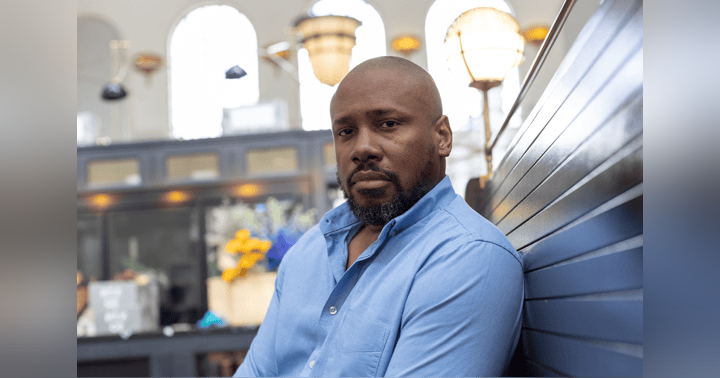
Memorial Day is more than just a day off, an opportunity for a cookout, or a sort of unofficial summer beginning. Today is a somber day of remembering to recognize the courageous men and women who gave their lives in the ultimate sacrifice for our nation. Too frequently, leisure activities overwhelm the actual meaning of this day. This essay will examine Memorial Day's historical background, its significance, and several thoughtful ways you may celebrate it now. This research complements the comments offered in the most recent podcast episode, Rich Bennett on the True Meaning of Memorial Day, which delves further into these subjects. For much more insights and personal reflections, kindly listen to the episode.
The Neglected Memorial Day Significance
Memorial Day weekend is for many associated with sales, outdoor events, and vacations. Although it's quite reasonable to appreciate these things, keep in mind the great significance of the occasion. Memorial Day is a day dedicated especially to honor and remember those who passed away serving in the United States Armed Forces. This is a time to consider the price of freedom and our debt to those who paid the ultimate penalty. It's about remembering people who are no longer with us, not only about honoring veterans. Understanding the actual meaning of Memorial Day helps us to guarantee that their sacrifices are never forgotten and that their legacy inspires next generations.
Memorial Day's historical roots span from Decoration Day to a National Holiday.
Memorial Day's roots are firmly in the aftermath of the Civil War, a struggle that claimed more American lives than any other in history. The enormity of the tragedy spurred extensive attempts at memorializing the dead. Originally called Decoration Day, the event sprang from local celebrations whereby families and communities would adorn military graves with wreaths, flags, and flowers. These early shows of loss and memory set the stage for what would finally be a national holiday.
The 1865 Charleston Commemoration
In 1865, Charleston, South Carolina had one of the first and most moving observances. Organizing a ceremony to memorialize the Union troops who had perished in a Confederate prison camp, recently liberated slaves They gave the dead troops a decent burial and memorial service and tidied the abandoned burial area. A monument to the uniting force of memory and the universal humanity that cuts beyond ethnic boundaries, this gesture of compassion and respect is conducted by a community that had only lately acquired its own independence. This narrative reminds us strongly that Memorial Day's core is in honoring the dead regardless of background or color.
General John A. Logan and General Order No. 11
General John A. Logan, Grand Army of the Republic (GAR) commander, an organization of Union veterans, issued General Order No. 11 in 1868, therefore formally establishing Decoration Day. The directive intended for May 30th is to be used as a day for floral decoration of Union army graves. This legislation helped to formalize the observance and encourage its general acceptance all throughout the nation. Early Memorial Day customs were shaped by General Logan's leadership and will to memorialize the dead.
Memorial Day vs. Veterans Day: Recognizing the Differences
Memorial Day and Veterans Day must be separated clearly. Although both holidays celebrate military personnel, their aims are different. Memorial Day honors individuals who passed away while serving in the military especially. This is a day for serious remembering the greatest sacrifice. Conversely, Veterans Day is a celebration of every veteran—living or dead—who has served the United States Armed Forces. Celebrating Veterans Day is the service and commitment of every veteran. Appreciating the service of all individuals who have worn the uniform and properly honoring the sacrifices of those who passed go depend on an awareness of this difference.
Meaningful Ways to Observe Memorial Day Today
Memorial Day has changed with time, but the fundamental idea of remembering always stays prominent. These are some thoughtful ways to honor Memorial Day today:
- Visit a Cemetery or Memorial: Pay your respects to the fallen by visiting a local cemetery or war memorial. Place flowers or flags on gravesites and take a moment to reflect on the sacrifices made. Arlington National Cemetery is a powerful place to visit if you have the opportunity.
- Attend a Memorial Day Parade or Service: Many communities host Memorial Day parades or memorial services. Attending these events is a way to show your support and honor the fallen together.
- Observe the National Moment of Remembrance: The National Moment of Remembrance, established by Congress, encourages all Americans to pause at 3:00 p.m. local time on Memorial Day for a moment of silence to remember and honor the fallen.
- Learn About the Fallen: Take the time to learn about the lives and stories of those who died in service to our country. Read biographies, visit online memorials, or watch documentaries about their experiences.
- Support Gold Star Families: Gold Star families are those who have lost a loved one in military service. Offer your support to these families by volunteering with organizations that assist them or simply expressing your gratitude for their sacrifice.
- Fly the American Flag: Display the American flag at your home or business as a symbol of respect and remembrance. Be sure to follow proper flag etiquette.
- Volunteer: Dedicate some of your time to volunteer with veterans' organizations or other charitable causes that support military families.
- Educate Others: Share the true meaning of Memorial Day with your family, friends, and community. Help others understand the importance of honoring the fallen.
The Emotional Weight and Responsibility of Remembrance
Particularly for individuals who have lost loved ones in military service, Memorial Day has great emotional weight. The day could trigger sadness, loss, and grief. One should recognize these feelings and let oneself experience them. Sharing recollections and tales of the dead can help one to process loss and honor their legacy. Apart from the emotional side, remembrance carries obligations as well. Preserving their memory and making sure their service is never forgotten helps us to commemorate the sacrifices made by the dead. This duty also includes teaching next generations the actual significance of Memorial Day and the need of preserving freedom.
Honoring Gold Star Families and the Fallen
Gold Star families have endured the ultimate loss, and it is crucial to honor their sacrifice and provide them with ongoing support. There are numerous organizations that offer assistance to Gold Star families, providing counseling, financial aid, and other resources. Supporting these organizations is a tangible way to show your appreciation for their sacrifice. In addition to supporting Gold Star families, it's important to actively honor the fallen by sharing their stories, visiting their gravesites, and participating in memorial events. By keeping their memory alive, we ensure that their sacrifice was not in vain.
The National Moment of Remembrance
Observed on Memorial Day at 3:00 p.m. local time, the National Moment of Remembrance is a potent means for group honoring of the dead. This moment of silence offers every American a chance to stop, consider, and commemorate those who passed away serving our nation. Participate in the National Moment of Remembrance wherever you are—at a parade, a cookout, or just at home. This little act can much help to honor the offerings made by the departed.
Why Memorial Day Still Matters
Memorial Day's actual meaning is easy to overlook in a society growing more fast-paced and hectic. Still, it's more vital than ever to respect and remember the offerings made by those who gave their lives for our nation. Memorial Day reminds us of the obligation we owe to those who fought for our liberties and their cost. Observing Memorial Day with respect and dignity helps us to renew our dedication to upholding the liberties and principles they battled to defend. Memorial Day reminds us most importantly of the cost of freedom and the need to respect those who have paid the ultimate price. It guarantees that their sacrifices are never forgotten and that their legacy motivates the next generations to serve and protect our country. This is a day to appreciate the present, go forward strengthening, remembering the past.
Memorial Day is, given the circumstances, a time for serious thought and sincere remembering. Today is to respect the courageous men and women who served our nation and assist the families they left behind. Let us not let leisure activities eclipse the actual meaning of Memorial Day. Rather, let's utilize this day to consider the price of freedom and the need of respecting those who have made the last offer. Building on the ideas and debates in the Rich Bennett on the True Meaning of Memorial Day radio episode, this blog post to delve more personally and in-depth on this crucial subject, we urge you to listen to the episode. Let's make sure the sacrifices made by the dead are never overlooked taken all together.










